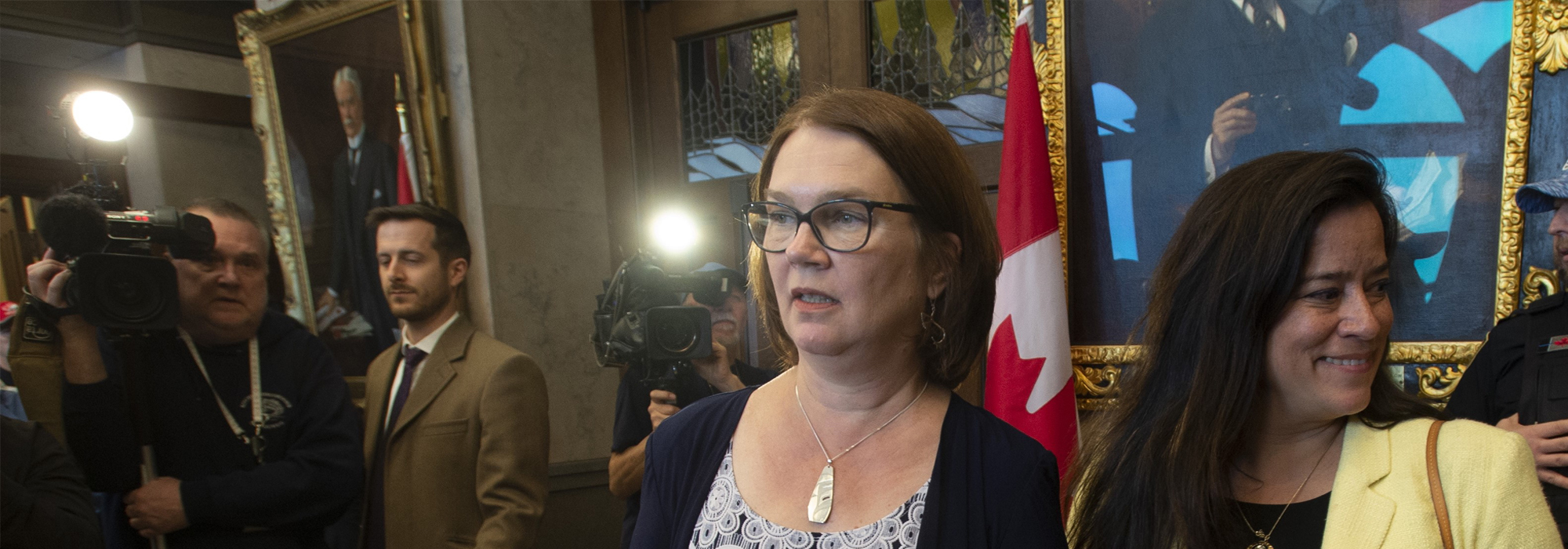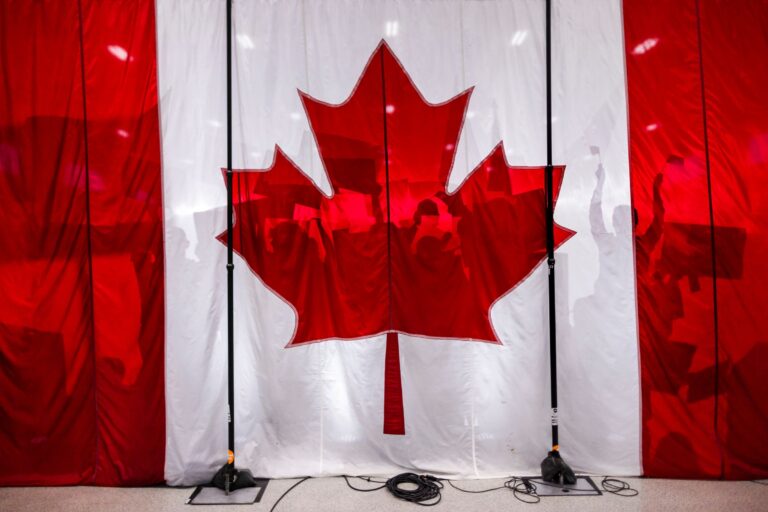With the expulsion of Jody Wilson-Raybould and Jane Philpott from the Liberal caucus, I began to think back on the other so-called “maverick” MPs I’ve come across over the past two decades. Who were the folks who dared to challenge the party line, or speak out of turn, or were just a little oddball? The list is pretty darn small, mostly male, and the individuals don’t last long in either their caucus or federal politics.
I’m thinking of Conservative MPs Brent Rathgeber, who tired of PMO micromanagement, and Garth Turner, turfed for saying too much in his blog. There was Bill Casey (Conservative, now Liberal), Carolyn Parrish (Liberal) and John Cummins (Conservative). There was earnest and outspoken Liberal MP Keith Martin; NDP MP Bruce Hyer who bristled at vote whipping on the long-gun registry; and yes, even Maxime Bernier. In the more polite vein, there is Michael Chong, one of the sole voices in the Conservative Party calling for intelligent carbon pricing and parliamentary reform. And thank goodness for Green Party Leader Elizabeth May, who consistently bucks the trend of uber-partisanship in favour of rational arguments and civility.
Within the Liberal Party ranks in the 1990s and early 2000s, there was a very identifiable group of anti-abortion, social conservatives who found their home in caucus – people like Tom Wappel.
But overall, MPs are a fairly obedient bunch, and the events of the last few weeks should give you an indication why. It turns out Parliament Hill is a bit like Grade 8: Sticking your head out from the crowd is social suicide. And God help you if you don’t know how things work around here, as former Liberal cabinet minister Sheila Copps has driven home with her criticism of Wilson-Raybould and Philpott. You’ll be called out for your political inexperience and naïveté.
When Keith Martin left politics in 2010, he said with a certain note of weariness it was because he wanted to find innovative ways to tackle the world’s problems.
“It is very difficult to do this in the current environment of Parliament, which is so hyper-partisan that it has become quite destructive,” Martin said. “So, I’m not interested in doing that. I’m interested in advancing those kinds of solutions; innovations that we can do for our country.”
So, the nutso thing about all of this is that the public seems to want independent-minded MPs – MPs who will go to bat for constituents and speak their minds, who aren’t so obsessed with their electoral fortunes as to sell-out their ideals. A diversity of viewpoints. It’s why Reform Leader Preston Manning used to criticize MPs for being “Ottawashed” from spending too much time in thrall to the nation’s capital. (It’s ironic to find Conservative MPs today come to the passionate defence of Wilson-Raybould and Philpott, when as part of the Harper government they never spoke publicly without a PMO staffer’s say-so, down to the SO-31 statements before Question Period that are by design supposed to be individual.)
Alex Marland, an expert in Canadian political branding and permanent campaigning, has interviewed 125 current and former MPs for a book he is writing about party discipline. One current, unnamed NDP MP told him that, “The biggest single disappointment upon becoming an MP was finding that caucus meetings were structured to begin with the head table sort of providing us with our marching orders.”
For women and racialized MPs, the pressures to conform to a place where you are in the minority are particularly high – which might also explain why so few women over the years can be described as “mavericks.” In her book Space Invaders: Race, Gender and Bodies out of Place, Nirmal Puwar explored how old political environments originally constructed to accommodate white men can make others feel perpetually out of place, and forced to work doubly hard to fit in. (In 1936, an MP alerted the Sergeant-at-Arms there was a foreign spy in the gallery – it was actually just Halifax Herald reporter Evelyn Tufts, the lone woman.)
So why exactly does this conforming, toe-the-line culture hold on so tightly in Ottawa? Of course, there is heaps to say about the lack of power that MPs possess vis-à-vis their party leaders, who still hold the power to approve or disapprove nominations, and in the case of the Liberals to make the ultimate decision on being in or out of caucus. If there were a rebalancing of power, as Chong has advocated for, MPs might be emboldened to be more free-thinking and individualistic.
But there’s another key reason that everyone keeps to their knitting, and that is the media. It is the media that declares people “maverick” or “renegade,” and obsessively notes when somebody strays from the party line. It’s no surprise – by definition, the “news” looks for things that are “new” and unusual and odd. But one could legitimately ask whether journalists were also attaching a negative connotation to the sharing of a different policy or political perspective, or speaking without talking points. Certainly, the searchlight for MPs who would speak off-script was permanently turned on during the Harper years.
Eric Merkley, a PhD candidate at the University of British Columbia, has studied party dissent. In a 2016 paper for the Canadian Political Science Association, he noted that internal dissent on its own won’t necessarily impact a party’s fortunes. The impact comes when journalists frame dissent as reflecting poorly on a leader’s competence and performance.
“Although columnists from across the political spectrum have bemoaned the lack of power for ordinary parliamentarians, they and their outlets likely play an important role in the maintenance of the status quo by framing disputes within a party as a reflection on the competence of the party leader rather than perfectly acceptable policy disagreement,” wrote Merkley.
Of course, Wilson-Raybould recorded her conversation with the Clerk of the Privy Council all on her own, and Philpott made a choice to accord Maclean’s an interview. These were the perceived straws of disloyalty that broke the camel’s back with the Liberal caucus.
But fundamentally these were also different types of MPs, with different visions of how to be a politician. As journalists, we might ask ourselves whether we celebrate this type of diversity of thought or, by virtue of framing it as a political aberration, are we driving politicians into conformity along with the party whips?
On another note – if you’re looking for individualistic parliamentarians unconstrained by party discipline, have a look at the new Senate. In a study released this week for the Institute for Research on Public Policy (which publishes Policy Options), Paul G. Thomas notes that the culture in the Upper Chamber, “is becoming less partisan, more restrained and more respectful of differences of opinion. The approach to issues and the methods of operation are becoming more consensual, deliberative, collaborative and constructive.”
Imagine that.
Photo: Independent Members of Parliament Jane Philpott and Jody Wilson-Raybould make their way to speak with the media before Question Period in the foyer of the House of Commons in Ottawa, on April 3, 2019. THE CANADIAN PRESS/Adrian Wyld
Do you have something to say about the article you just read? Be part of the Policy Options discussion, and send in your own submission. Here is a link on how to do it. | Souhaitez-vous réagir à cet article ? Joignez-vous aux débats d’Options politiques et soumettez-nous votre texte en suivant ces directives.












